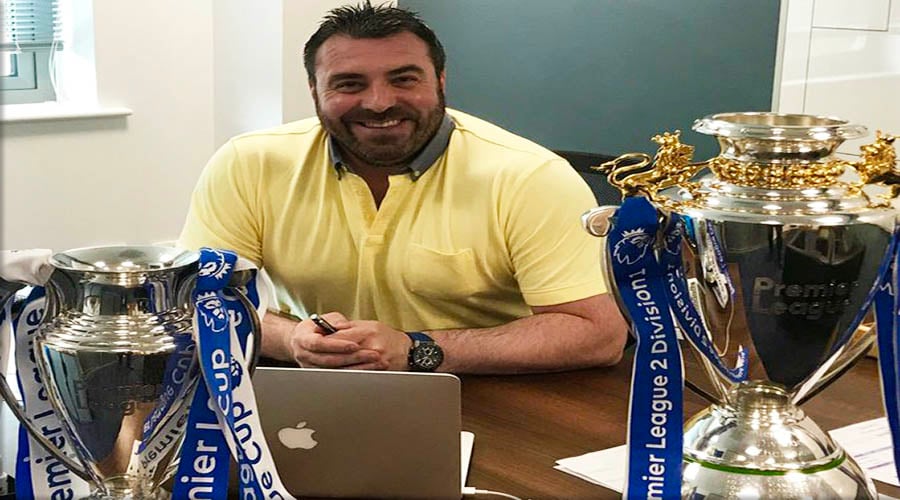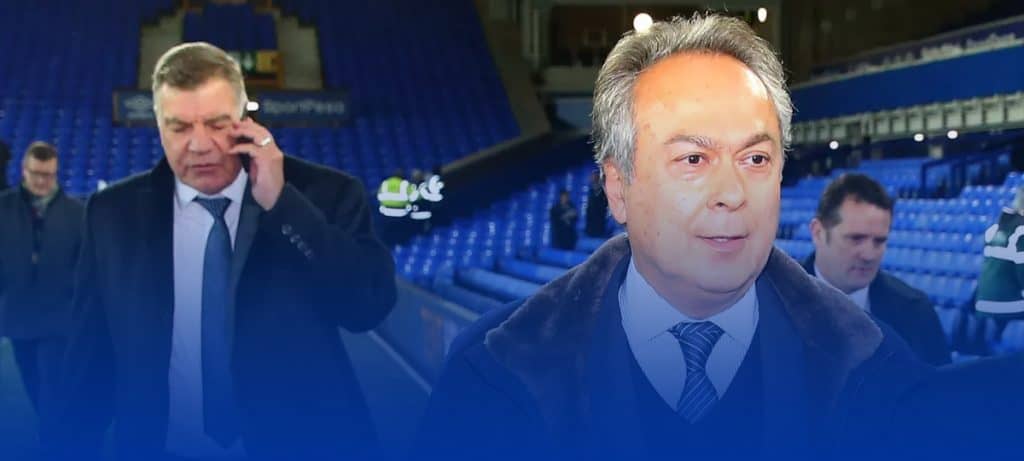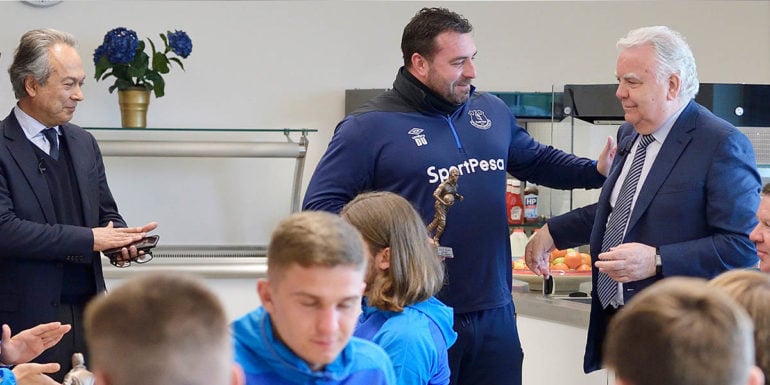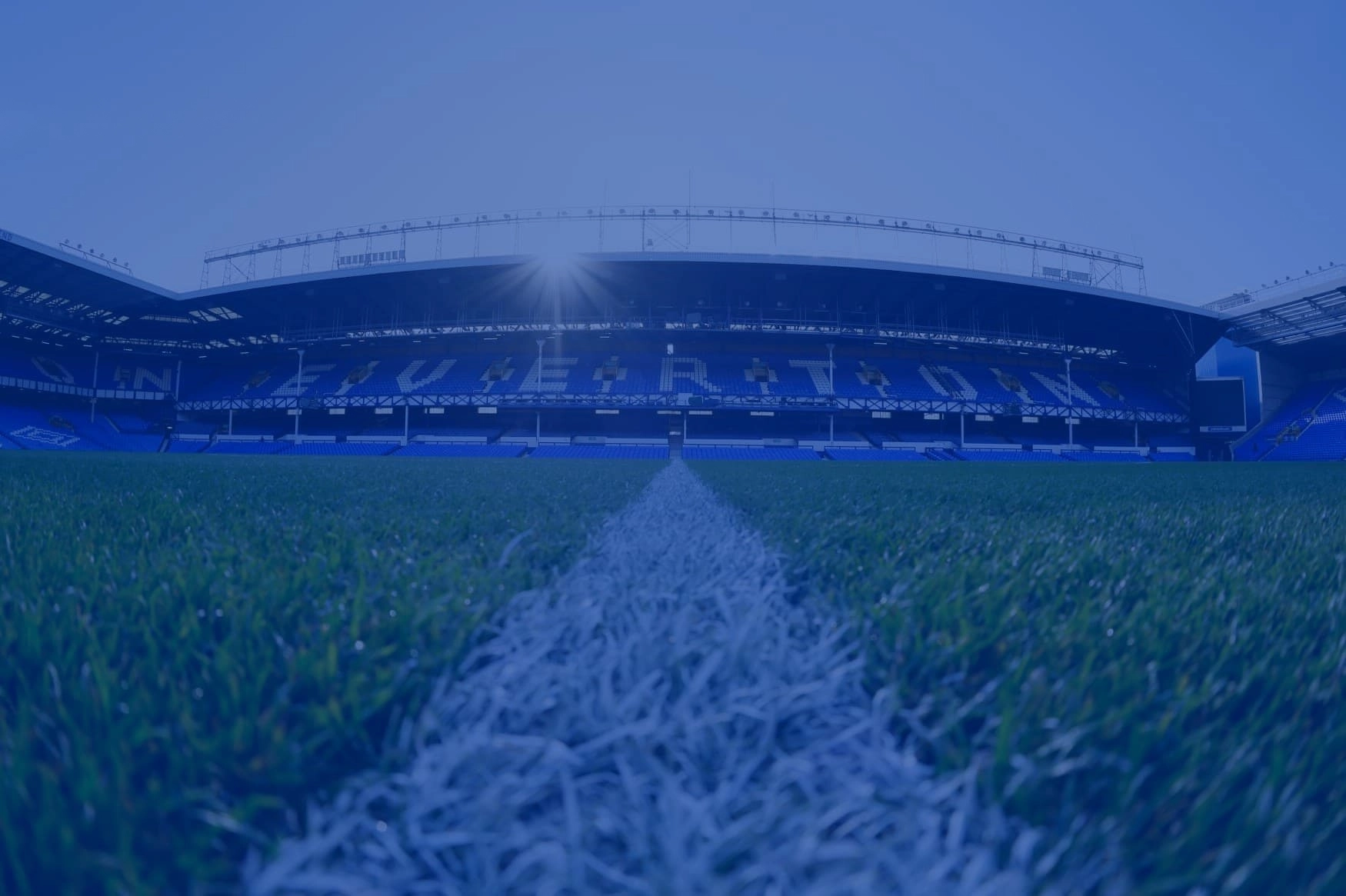David Unsworth leaving the club as academy Director and Under 23’s coach is probably the biggest back-office change there has been since Moshiri’s takeover. Unsworth remained close to the “old guard” of the club, was a favourite of the Chairman and CEO and received unilateral support from each. While there had been murmurings in the background, to see the club act as decisively is overall a good sign and one that should be cautiously welcomed by supporters.
I say this as someone who is reasonably fond of David Unsworth. Much of the debate around him appears to be very polarised. It was noted in one WhatsApp group I am on that the reaction between Twitter and Facebook was wholly different. Either a great club man who had won the cup being moved on, or a figure of fun who was almost singularly holding the club back on the other. Both perspectives have legitimacy, but as is often the case, the truth lies somewhere between them.

I’ll start with the positives of Unsworth. I happen to think he has done a reasonable job. It’s often thrown at him that he has put trophies ahead of development. Perhaps so, he has won 2 under 23’s league titles, but the development of players has not been that bad. In his 6 years Tom Davies, Jonjoe Kenny and latterly Anthony Gordon have made it through the academy to first team. Mason Holgate and Dominic Calvert Lewin have also spent time in his under 23’s before making the step up. Brandon Galloway also made appearances for the first team before ultimately falling away. Below those 5 or 6 there are a number of potential prospects on the fringes. Jarrod Brainthwaite looks a promising centre back, Lewis Dobbin has made some appearances, while Isaac Price has been name checked by Frank Lampard. Reece Welch and Tyler Onyango have also seen some first team action. Obviously, the latter names on the list are more speculative and far less “first team” players than the first 5 names, but it does seem that the speed and number of players breaking through is going quicker. This perhaps is some defence of Unsworth, who may point to this as a sign of his methods.
Either way, you have 3 academy graduates, at least 5 overall players who have been with his under 23’s as under 18’s who have made it to the 1st team currently with probably another 4 academy graduates and 1 external recruit putting pressure on. Sure it could be better, but it could also be a lot worse. In the 6 years prior to Unsworth you have Ross Barkley breaming through, and possibly Jack Rodwell. Whether you count Jack Rodwell or not may well signify whether you view the period as more or less successful, but there is reasonable evidence that Unsworth has done no worse in his time in charge. It is a respectable level of player performance. The challenge for Everton of course, is we need to be better than respectable given the situation we find ourselves in.
Another criticism of Unsworth is the style of play isn’t great, or doesn’t mirror the first team. If we take the latter objection first, how could it? In Moshiri’s time, Everton have had managers Koeman, Allardyce, Silva, Ancelotti, Benitez and now Lampard. While some have overlaps, each of them have distinctive styles. Academies work on much longer time frames. Given the turnover of managers we have had, it would have been impossible to bed in a style suited to a single manager. This is a big defence of Unsworth, who compared to predecessors who generally got to work under 1 manager and didn’t produce much better results, he has still churned out players.

In the absence of a consistent style from above, he has cultivated his own style, in no small part in his own image. Everton teams at under 23’s are well organised, hardworking, well-disciplined and tenacious without the ball. They lack quality with the ball at times, and will often resort to percentage football. You can look at this either way, but he has done well at instilling a consistent message, where there has been inconsistency in other areas of the club. In his favour, having Everton play the way they have has probably prepared the younger players for the expectations of what playing for Everton is likely to be. You are likely to have to be able to defend, take good defensive positions and work as part of the team. He may well say preparing plyers to have 70%+ possession when they play for a team that will be below 50% is setting them up to fail. He may well be right.
The counter to this is that Everton’s academy has to serve a function of revenue generation as well as serving the first team players, and producing players who are unable to be more comfortable on the ball makes this harder. There has been some vogueish notion that Everton could sell to teams below them for big fees, in a way Liverpool or others do. Its complete folly of course. Nobody is paying £10m+ for players that can’t get into Everton’s team. Whether we like that or not, it’s not going to happen. Championship teams have no cash and won’t pay anything. Our hope with academy players is to sell them to clubs above us (notably the top 6 in this country and a selection of 6-10 teams abroad) is the best way to bring money into the academy. In this instance, you need players who are faster, less risk averse and more comfortable on the ball. See what those who successfully adopt that model do. See what RB Leipzig do. They recruit and develop powerful, strong, fast, technically skilled players over ones who may have the tactical discipline. These are the sorts of strategic discussions that need to be happening from the Director of football (who himself operated to a high level in the RB franchise) if they are not already. Looking at the qualities those top teams are after, and tailoring an academy approach to suit them.
This is perhaps one of the weaknesses of Unsworth and the club more generally. You are not sure they ever really looked at the academy in such a clinical manner, but rather a nostalgic way. For a club in Everton’s position, generally not anywhere near the top 4 (in the short term) and (generally) not near the relegation zone, the focus has to be more long term in its thinking. Football clubs essentially operate akin to banks, whereby you are trying to drive asset prices up. In football the assets are the players. The academy is an asset growing factory. Your return on capital is huge and in truth it is an area that is not yet fully utilised across football (particularly in England where short termism reigns).
I was pleased to see the club had recruited a DOF who was not only employed by RB (and had the youngest team in his division while in post) but also someone who had academy experience in the past. I’m also pleased that this is his first area of priority. For too long the club has ought external recruitment as the sole solution, without perhaps asking the question of what happens when the money runs out? And is there a more effective way of deploying this capital in a way that reproduces itself. If Unsworth’s performance can be a baseline, it will be exciting to see what can be achieved over and above this, by a highly respected Director of Football. It’s pleasing he wants the club to do better and feels it needs to do better in this area.
It was probably one of Marcel Brands biggest mistakes, that he did not insist on full control of the academy from day 1. Brands seemed to willing to trust the existing structures, rather than implement his own vision, and by the end it was hard to see exactly what he did or didn’t do. It is a positive that Thelwell has made it clear that he wants to take accountability for perhaps the biggest long-term aspect of the club and wants to drive standards. If he doesn’t think someone is up to the job, we should support him fully in him making such a call.
In the short term, there is a crop of talented young players on the fringes of the first team, and a young manager who seems prepared to give young players a chance. We can only hope that some joined up thinking may be a step in the right direction, and a move to putting the club on more of a sustainable footing moving forward.



